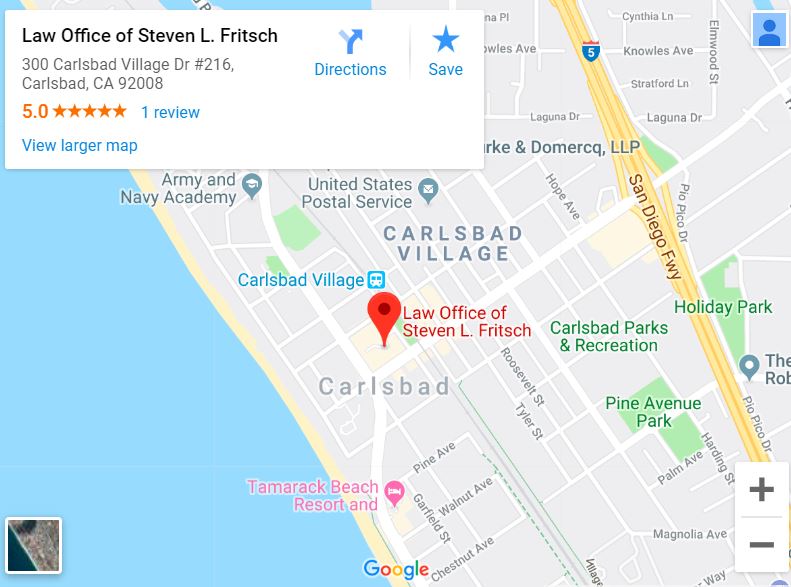A common and important question in a divorce proceeding is will my spouse have to pay my attorney fees? There are two sources of authory for fees and costs awards in dissolution, legal separation and nullity actions. The first is need-based awards pursuant to Family Codes 2030 and 2032 and the second is an award of fees and costs as a sanction pursuant to Family Code 271. Whether requesting an award of fees and costs pursuant to Family Codes 271, 2030 or 2032, such fees and costs can be awarded pendente lite (during the pendency of an action), after trial or post-judgment.
Need-Based Awards
Need-based fees and costs must be made with written notice unless it is a request for temporary order which can be made orally in open court without notice. Either way it is requested, a valid Income and Expense Declaration must be on file to request fees. The purpose of a Family Code 2030 fee award is to ensure that a party has sufficient resources to adequately litigate and each party has equal ability to obtain legal representation. In deciding whether to award fees under said statute, the court must look at (1) the parties’ incomes; (2) a disparity in access to funds to retain legal represenation; and (3) whether one party is able to pay for the legal representation of both parties. Put simply, the court looks at need and ability; the need of the party requesting the fees and the ability of the other party to pay.
If the court determines that a fee award is necessary, the next questions is how much? In deciding the amount of the award the court must consider the same factors in deciding whether to make the award, i.e., what is just and reasonable under the parties relative circumstances and must base its decision on the parties’ incomes, needs and ability to pay. If the court follows the previously mentioned factors, it has broad discretion in awarding or denying fees. Unlike child support orders or temporary spousal support orders, there is no guideline to assist the court in what amount should be ordered. What this means, it is difficult to determine what fees a judge may order and such amounts can very from case to case and judge to judge. As such, it is difficult for attorneys to speculate on what fees the court may order.
The court can look at all available sources from which fees can be paid from. That means the court may order payment from “any type of property, whether community or separate, principal or income.” Marriage of Melone (1987) 193 CA3d 757, 765. In other words, although a spouse may not be entitled to another spouse’s separate property, such separate property can be “tapped” for attorney fees.
Family Code 271 sanctions
A Family Code 271 fee award is a penalty against a party for the culpable conduct of the party or the party’s attorney that frustrated the promotion of settlement and the reduction of litigation costs. It does not require a showing of “need” by the requesting party. Although the attorney’s conduct can be a factor in awarding fees, the attorney cannot be sanctioned under this statute. While “need” is not a factor, a 271 sanction must be scaled to the sanctioned party’s ability to pay. Like need-based fee awards, the court has broad discretion is awarding fees and the amount of sanctions will only be overturned on appeal if there has been an abuse of discretion. For an award of fees and costs under FC 271, there must be notice to the party against whom the sanction is sought and opportunity for that party to be heard. No Income or Expense Declaration is needed to request 271 sanctions.
